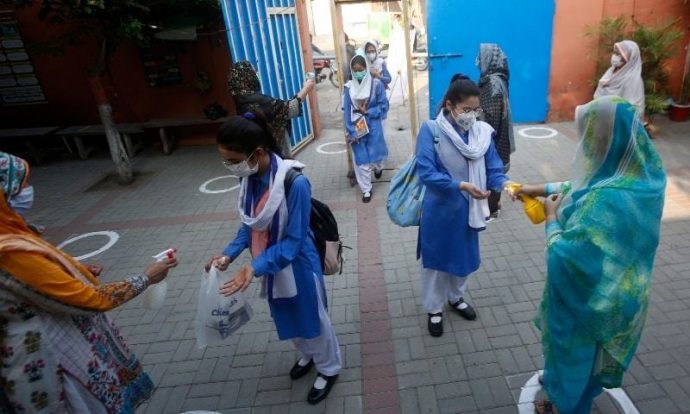
Role of Extracurricular Activities in Holistic Education in Pakistan
Introduction
Extracurricular activities are a very important part of the education system in the present day. Experts believe that when students engage in the extracurricular activities along with their academic activities, it helps in the development of a well-rounded education system that offers a wide ways for personality development for students and thus resulting in better and well-rounded individuals who are not just book worms. Extracurricular activities encompass a wide range of activities apart from academics including sports, arts, different types of clubs including dramatics, debates, grooming, painting, embroidery, wood work, candle making, volunteer work, event designing and stage decoration, hosting of events etc. Therefore, it could be said that a more holistic approach to education would includes academic development, skill development, extracurricular activities social interaction and the overall well-being of students.
Importance of Extracurricular Activities
Academic enhancement includes participation in the extracurricular activities which according to a number of research studies has shown a positive correlation to the improved academic performance. Teachers have explained as they have practically experienced that students who engage in extracurricular activities have proven to demonstrate a better understanding as well as practical application of the academic concepts that have been studied in theory.
Students who are involved in extracurricular activities are able to develop their skills, especially the crucial life skills like leadership, team management, time management, delegation, critical thinking, negotiation skills, communication skills and problem solving. These skills are very important to learn and are proved indispensable if one wants to be successful in life.
Development of Social Skills
Social skills are also known to be developed in a much profound way when the extracurricular activities are also being carried out on the side of the academics. Skills like communication and negotiation skills are used when extracurricular activities facilitate interaction amongst the students. When students belonging from diverse backgrounds interact for various activities, it promotes an exchange of culture and understanding along with collaboration and empathy. It is important to recognize that only academic development is not enough for being successful in life. Therefore, if we see that a student is not good with getting an A* in every subject but has very good social skills or communication skills, he should be equally encouraged as there is always a chance that an individual will be good at something else.
Importance of Physical activities
Physical activities are also a very important part of many schools, colleges and universities and these programs incorporated in the extracurricular activities encourage individuals to have a healthy lifestyle, which helps in reducing stress and promote overall physical and mental well-being for the students, not only at their school or college level only but it is also developed as their habit throughout their life.
Challenges to Implement Extracurricular Activities
In spite of the many benefits of extracurricular activities alongside academics, there are a number of challenges that are faced in implementing extracurricular activity programs. Limited access and inadequate funding often restrict participation. Many students, particularly in underprivileged areas, face hurdles in accessing these opportunities due to financial constraints and lack of resources. They are not able to participate in these extracurricular activities as it is already very difficult for them to make their ends meet and meet the academic expenses. Educational institutions are increasingly recognizing the importance of these activities and integrating them into their systems.
Conclusion
Extracurricular activities are indispensable for a holistic educational experience in Pakistan. Encouraging their broader integration and addressing challenges surrounding access and recognition will significantly contribute to nurturing well-rounded individuals.

Content writer, educationist, teacher, researcher, social media manager, and a SEO manager from lahore. She has been working as a freelance academic and non-academic writer for more than 20 years now. She has a passion to learn new things and has a knack for writing and she combines both things to produce write ups she pours her heart out in.

